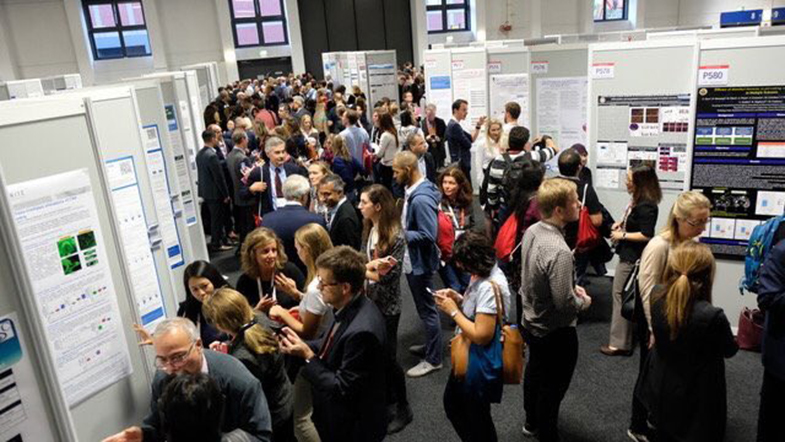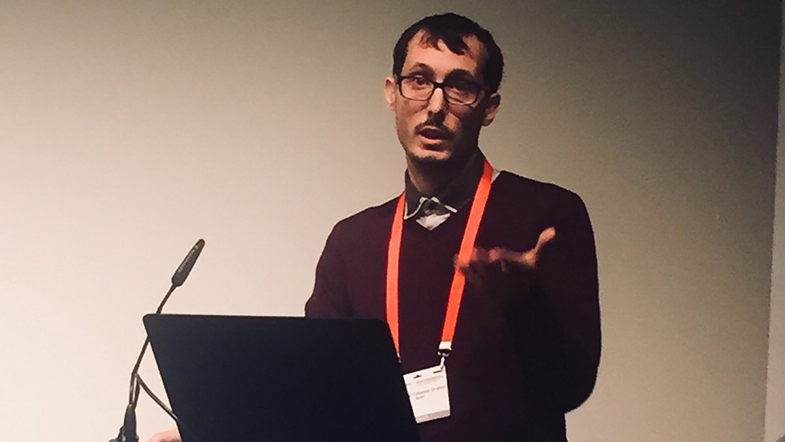ECTRIMS 2018 have been an opportunity to understand better the clinical expert needs
European Committee for treatment and research in Multiple Sclerosis (ECTRIMS) that was held in Berlin, Germany, from October 10th to 12th, 2018. During the last 25 years, ECTRIMS has served as Europe’s and the world’s largest professional organization dedicated to the understanding and treatment of Multiple Sclerosis (MS). The conference includes three days of oral presentations authored by the world-top scientists and clinical experts on the field. Furthermore, the conference provides also several poster sessions which are useful to both spread the research and community networking.
As a former Magnetic Resonance Imaging in Multiple Sclerosis (MAGNIMS) grant fellow, Mariano Cabezas participated in the MAGNIMS alumni meeting on Wednesday 10th. Mariano presented his previous research on new lesion detection developed during his stage at Vall d’Hebron Hospital in Barcelona. His resulting research has permitted clinical experts to automatically delineate new lesions on MS patients, reducing significantly the variability between experts and also the diagnosis time.
At the same time, we presented also two posters on automated lesion detection using deep learning during the conference. Sergi Valverde introduced our new pipeline nicMSlesions, which has been lately re-designed to reduce the amount of training data, allowing accurate lesion segmentation using few or even a single training image. Similarly, we also presented an extensive analysis of different state-of-the-art deep learning pipelines applied also to lesion segmentation done by our PhD student Albert Clérigues. In this work, we analyzed six different brain lesion segmentation deep learning models, studying the effect of their characteristics on the accuracy segmenting MS lesions.
The conference was an interesting opportunity to share experiences and learn from the world-top experts in the field. It was also a fantastic opportunity to have feedback from our tools and also to understand better the clinical expert needs. We strongly believe that our tools can continue contributing to the MS field, helping the clinical experts to monitor and diagnose the disease.


